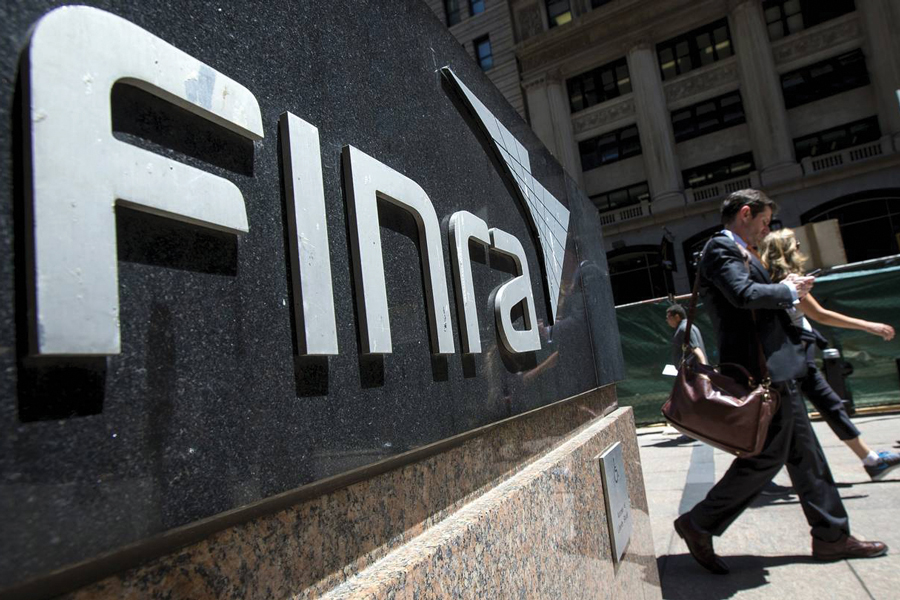

Finra announced Wednesday it will return $2.7 million to harmed investors in the initial results of a program targeting brokerages that earned excessive fees for 529 college savings plans.
Most of the restitution the Financial Industry Regulatory Authority Inc. obtained came from a $1.7 settlement with Morgan Stanley Smith Barney. In another settlement, B. Riley Wealth Management agreed to return approximately $250,000 to investors. The remainder of the restitution came from 17 firms that resolved their violations through cautionary action letters.
The settlements stem from the 529 Plan Share Class Initiative Finra launched in January 2019. Under the program, brokerages voluntarily review their supervisory procedures for sales of 529 plans and self-report instances of selling high-fee plans that are inappropriate for customers. If they provide a plan to correct the problem and remediate harmed customers, they avoid fines.
“The purpose of the 529 initiative is to remedy potential supervisory and suitability violations related to 529 plan share-class recommendations, and to return money to harmed investors as quickly and efficiently as possible,” Jessica Hopper, Finra executive vice president and head of enforcement, said in a statement. “We are very pleased with the substantial progress made thus far, are encouraged by the level of cooperation of member firms that self-reported and expect to resolve the remaining matters in the coming year.”
Finra’s crackdown on inappropriate recommendations of high-fee 529 plan share classes mirrors the share-class enforcement being conducted by the Securities and Exchange Commission. Last year, the SEC concluded its own initiative related to inadequate disclosures of mutual fund 12b-1 fees and it continues to pursue enforcement actions.
From January 2013 through June 2018, Finra alleged that Morgan Stanley failed to apply its own guidelines — known as “grids” — for determining the suitability of 529 plan sales in legacy accounts and in transactions made directly with 529 plans.
The firm allegedly did not consider factors such as the age of the beneficiary and the expected holding period, which resulted in more than $180 million sales of 529 plan Class C shares when less expensive shares would have been more suitable for investors. Morgan Stanley agreed to pay $1.7 million in restitution and interest to the owners of 2,293 accounts.
Finra gave Morgan Stanley credit for extraordinary cooperation through its participation in the 529 share-class initiative and did not fine the firm, which neither admitted nor denied the charges.
“We are pleased to have resolved this matter,” a Morgan Stanley spokesperson said.
In the settlement with B. Riley Wealth Management, Finra said that from January 2013 through June 2018 the firm did not conduct adequate supervisory review of the activity in at least 3,119 accounts, including 620 accounts with beneficiaries under 12 years old that held at least $4.6 million in Class C shares.
B. Riley Wealth Management self-reported through Finra’s 529 initiative and agreed to pay a total of $252,740 in restitution and interest. It received credit for extraordinary cooperation, and Finra did not impose a fine. The firm also did not admit nor deny the charges.
“B. Riley has continued to enhance its supervisory procedures, as well as training, guidance and policies for its registered representatives since acquiring BRWM’s legacy firm in 2017,” a firm spokesperson said in a statement. “As noted by FINRA, BRWM voluntarily self-reported its findings, immediately took corrective actions and proposed a plan to efficiently remediate the small number of potentially affected accounts. Pursuant to the AWC, BRWM is not subject to any fines or penalty. Upholding trust and confidence among our valued clients remain our utmost priority, and BRWM is committed to continued transparency.”
In a November 2019 Finra settlement, Merrill Lynch and Raymond James agreed to pay $12 million in restitution to customers who incurred excessive fees on 529 savings plans due to lack of supervision of share-class recommendations. The settlement was based on actions the firms took before Finra’s 529 share-class initiative was announced earlier that year.

Elsewhere in Utah, Raymond James also welcomed another experienced advisor from D.A. Davidson.

A federal appeals court says UBS can’t force arbitration in a trustee lawsuit over alleged fiduciary breaches involving millions in charitable assets.

NorthRock Partners' second deal of 2025 expands its Bay Area presence with a planning practice for tech professionals, entrepreneurs, and business owners.

Rather than big projects and ambitious revamps, a few small but consequential tweaks could make all the difference while still leaving time for well-deserved days off.

Hadley, whose time at Goldman included working with newly appointed CEO Larry Restieri, will lead the firm's efforts at advisor engagement, growth initiatives, and practice management support.
Orion's Tom Wilson on delivering coordinated, high-touch service in a world where returns alone no longer set you apart.
Barely a decade old, registered index-linked annuities have quickly surged in popularity, thanks to their unique blend of protection and growth potential—an appealing option for investors looking to chart a steadier course through today's choppy market waters, says Myles Lambert, Brighthouse Financial.
